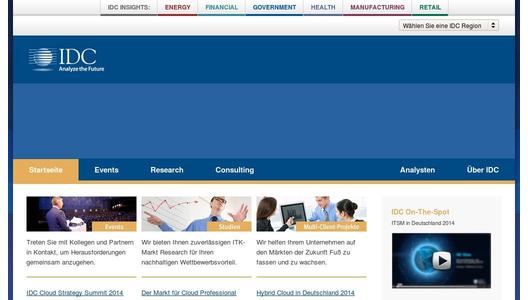Dell's ongoing transition from a hardware to a solutions company has become more apparent since the vendor acquired dozens of software companies over the past years and went fully private seven months ago. Having largely recovered from the disruption that this transition has created, Dell is now on a good path to shift its focus to customer and end-user experience and longer-term visions for holistic solutions. However, existing Dell customers as well as potential buyers of Dell's technology and services need to understand that there are still challenges that lie ahead for the vendor.
Bottom Line for ICT Buyers:
1. Dell has realized that its traditional product-centric approach no longer provides competitive edge as end users have moved away from buying technology towards business outcomes-oriented solutions . Therefore the vendor is aiming to engage deeper with C-level executives regarding holistic solutions and visions rather than product specifications. IDC believes that this is a feasible approach; however it could turn out to be more challenging to foster long-term sticky relations. Customer organizations could benefit from more efficient relations with vendors like Dell that provide advice and drive innovation; however we would also advise organizations to avoid single vendor lock-in and continue using several IT vendors.
2. Dell's key four pillars: Transform, Inform, Connect, Protect are no longer clearly divided by product lines. Instead Dell aims to offer holistic integrated solutions that can help customers transform their businesses and take advantage of various devices (including wearables) as well as the cloud. Some IT departments may still be overwhelmed by the complexity of Dell's extensive offering and the numerous acquired company logos. Nevertheless, business-focused executives are increasingly seeing the value that this type of integrated and holistically managed approach can generate in terms of higher operational efficiency, lower costs and competitive advantage from turning data into valuable insight.
3. Dell has refocused it services strategy to become a cloud broker instead of running its own public cloud service. This move is aimed at avoiding competition with service provider partners and sending a credible message to customers that Dell is not trying to lock them into its own public cloud offering, which differentiates Dell's offering from the likes of Microsoft and IBM that also push their own cloud services alongside partner networks. At the same time, other players such as HP and Cisco provide comparable cloud solutions to Dell's, so competition in the managed cloud and cloud brokerage space is intensifying. Customers could benefit from Dell's service if they aim to combine multiple clouds based on various workloads, though some may prefer to deal directly with their local providers in order that they have a level of comfort around exactly where their data is being located.

